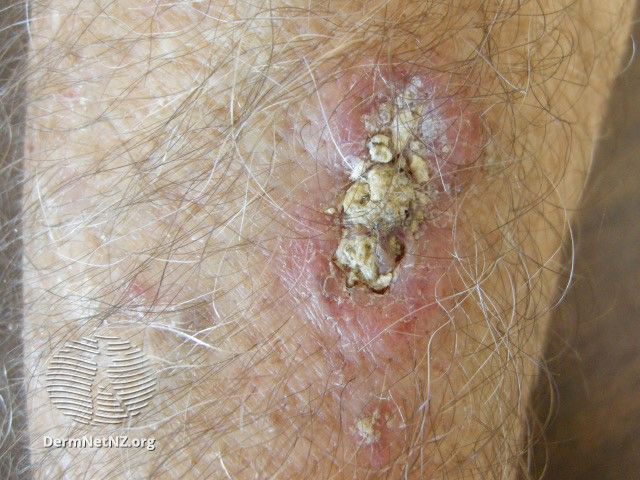- Acne
- Actinic Keratosis
- Aesthetics
- Alopecia
- Atopic Dermatitis
- Buy-and-Bill
- COVID-19
- Case-Based Roundtable
- Chronic Hand Eczema
- Chronic Spontaneous Urticaria
- Drug Watch
- Eczema
- General Dermatology
- Hidradenitis Suppurativa
- Melasma
- NP and PA
- Pediatric Dermatology
- Pigmentary Disorders
- Practice Management
- Precision Medicine and Biologics
- Prurigo Nodularis
- Psoriasis
- Psoriatic Arthritis
- Rare Disease
- Rosacea
- Skin Cancer
- Vitiligo
- Wound Care
News
Article
Investigation of Risk Factors for Metastatic Cutaneous Squamous Cell Carcinoma in Organ Transplant Recipients
Author(s):
A poster presented at SDPA’s fall conference revealed key insights into the importance of close monitoring and preventative measures in patients with cSCC.
A recent study conducted at the University of Texas Southwestern Medical Center in Dallas delved into risk factors associated with metastatic cutaneous squamous cell lymphoma (cSCC) in organ transplant recipients, offering insights into the importance of close monitoring and preventative measures, as noted in a poster presented at the 2023 Society of Dermatology Physician Assistants Fall Conference in Nashville, TN.1
Solid organ transplantation has been a lifesaving medical breakthrough for countless individuals suffering from organ failure. However, along with the hope of extended life comes a unique set of challenges, one of which is the increased risk of malignancies in transplant recipients. Among these malignancies, cSCC stands out as the most common neoplasm found in organ transplant patients, according to study authors Anthony Solhjoo, BS, and Cynthia Griffith, MPAS, PA-C.
Solhjoo and Griffith utilized the Organ Procurement Transplant Network (OPTN) database to gather pre-transplant and post-transplant data from January 1, 1991, to July 30, 2022. Among 2,546 reported transplant cases at their institution, 16 patients were identified to have metastatic cutaneous squamous cell carcinoma, constituting less than 1% of the cases.
Key findings from the study revealed that a majority of the affected patients were male (88%), with an average age of 59 years at the time of transplant. More than half of these patients (62%) did not report a vocational history involving significant sun exposure. The average time from transplant to metastatic cSCC diagnosis was approximately 7 years, while the time from metastatic event to death averaged 9.25 months.
Almost half of the patients involved in the study (43%) died from metastatic cSCC, underlining the urgency of early diagnosis and treatment, according to study authors.
Additionally, investigators noted a lack of HPV vaccination among the 16 patients. This finding raises the question of whether HPV vaccination might serve as a protective factor against cSCC development in the organ transplant recipient population, they noted.
The study aligns with existing literature on known risk factors for cSCC in organ transplant recipients, emphasizing the need for vigilant monitoring in dermatology clinics to facilitate early diagnosis and mitigate mortality rates and underscoring the significance of screening protocols and other preventive measures for this patient group.
"With most organ transplant recipients developing cSCC within 7 years of transplant, close and frequent monitoring of patients in a dermatology clinic is imperative in early diagnosis of treatment in cSCC and decreasing mortality," wrote Solhjoo and Griffith. "More studies are needed to examine screening protocols and other preventative measures in organ transplant recipients and cSCC."
Reference
- Solhjoo A, Griffith C. Study of risk factors for metastatic squamous cell carcinoma in organ transplant recipients at an academic medical center. Poster presented at the 2023 Society of Dermatology Physician Assistants Fall Conference, October 26-29; Nashville, TN.
Make sure to keep up to date with the latest in coverage from the conference and subscribe to Dermatology Times to receive daily email updates.
Newsletter
Like what you’re reading? Subscribe to Dermatology Times for weekly updates on therapies, innovations, and real-world practice tips.
















